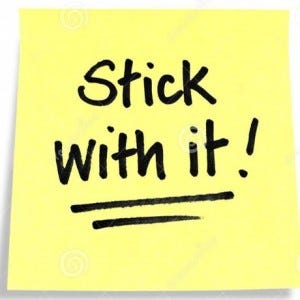Want the dress? Order before 12pm and get it tomorrow.
Post a comment??receive 10 instant likes.
Order a coffee??select from one of our 50+ flavours.
To quote Bob Dylan, The Times They Are A-Changin. We live in a world of instant gratification and whether we like it or not, its the only world that teenagers know. They dont know any different.

Todays teenagers are a product of an environment created by a relentless education system, hell-bent on measuring results and assessing impact. How can we measure progress? We teach and we test. And we repeat. And we do it from cradle to coffin. I recently stood aghast, listening to a friend who is a first-time mum, genuinely worried that her 15 month old baby hadnt met her nursery target to sip from a tippee cup without a lid. She was worried that her daughters motor skills were falling behind her toddler-peers. Do you think I should be worried? she asked. Maybe shes uncoordinated. Maybe she wont be that sporty .
This worry will extend through her schooling life. Is she doing well? What grades is she getting? Is she keeping up with her peers?
Well, what if she doesnt get the grades? What then?

The age of instant gratification unfortunately extends to classrooms throughout the UK. Students who struggle to initially grasp concepts, panic. If they dont immediately understand a new Maths equation, he/she may give up. They get stressed (millennial jargon for this is difficult??Im panicking??Ill say stress and subsequently distance myself from the issue at hand). Of course, this doesnt apply to all students??that would be a sweeping statement??but it is a growing problem.

Cue Carol Dweck and her philosophy on Growth Mindset. She immediately dismisses the idea that people can be categorised by whether they are innately bright or academically weak. She entirely refutes the idea that intelligence or talent is a fixed trait, instead she believes that ability can be improved through effort, through hard work and dedication. She teaches strategies to help students learn. She teaches resilience. She teaches not yet.
In 1953, a company called Rocket Chemical Company and its staff of three set out to create a line of rust-prevention degreasers. It took them 40 attempts to get the water displacing formula to work.

After the 40th attempt, they had their Eureka moment and WD40 was born. The company had refused to give up. They embodied Dwecks growth mindset.
Dwecks philosophy encompasses Kloodles view of the world. We understand that students are learners. As such, they make mistakes. They are learning about themselves and the world around them. They havent formed all of their opinions and at 16, how could they? They are part of a process and this is what Kloodle wants to record. We sometimes receive panicked Intercom messages off students who have got to the Employment section of their profile and have nothing to put.
Thats fine.
Use a growth mindset.
Why is employment important? What skills does it teach? Is this something that would benefit you? In posing these questions, we are asking the student to assess their skill-set and take an active role in self-improvement. They might not have employment yet but as a result of Kloodle, they might consider how work experience could strengthen future applications.
When we deliver training, we ask staff to list activities they complete in the classroom that affords students the opportunity to demonstrate key skill-sets. Generally speaking, staff find listing teamwork and communication activities relatively straightforward but seem to struggle more with listing activities that encourage initiative and resilience. These are tough skills to teach but when we think about our best past students, they exhibited these skills. They didnt expect to get it straightaway. These students stuck with it and demonstrated what Northerners refer to as grit. In delivering Kloodle, staff are

forced to consider how regularly (in a very packed syllabus and demanding scheme of work), they teach tough employability skills. Its a difficult task but in a world that seems to make acquisition of products ever easier, we need to teach students how to make an effort. How to get up after the first hurdle and try again. How to not get stressed and how to dig deep.
In a funny way, Kloodle flies in the face of C21st ideals. Yes, its an on-line platform, yes it has nice graphics and yes, it does embrace social media. But it also teaches students to be in it for the long haul. If you are unable to exhibit a skill at first, as Dweck eulogises, stay with it.

Kloodle exposes students weaknesses and at first, they dont like it. They dont get the instant gratification they are used to. But stick with it and you will reap the rewards. You will be building towards a future generation that isnt frightened of seeing their own weaknesses and more importantly wants to put effort into consolidating the gaps they can see within their own skill-set.
